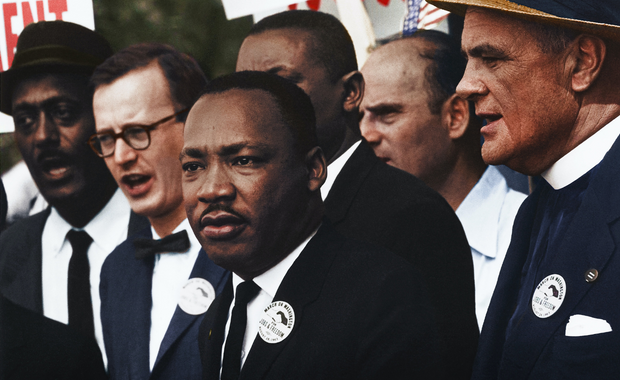Change Your Mindset
How to Stand Out as a Leader in 2023 & Beyond
enhance your executive presence to build your personal and professional brand and achieve all-around success

Leaders like Mahatma Gandhi, Winston Churchill, Martin Luther King Jr. John F. Kennedy, Ronald Reagan, Mother Teresa, Dalai Lama, and Barack Obama have one thing in common – executive presence. They stand out from others through their physical appearance, charisma, etiquette, and mannerism. They all have the X factor and the pull factor that attracts the attention of others and makes them exceptional.
Of late, executive presence has been catching up globally as most chief executives and leaders realized its importance to improve their influence and enhance their leadership presence. There are books authored on the concept of executive presence that shows the significance of executive presence.
What is executive presence?
Some people bring happiness wherever they go; some people bring happiness whenever they go. The people with executive presence belong to the first category where they bring in a lot of happiness wherever they go to a group through their appearance and charm.
When you see some people you get attracted to them immediately, and you feel like speaking to them and spending your precious time. You will show your interest to associate with them, and try to help as much as you can without expecting any returns from them.
Your mind will be occupied with such people and you enjoy talking about them with others. You often think about them and appreciate aping them. This is known as executive presence, and it is precisely known as a “wow” factor which is easy to see and yet hard to define.
Executive presence is the ability to influence others through your communication skills, appearance, and dress code. It is a magnetic charm that adds value to your leadership ability. It helps in getting tasks executed successfully. It is a blend of various traits and skills such as personal appearance, dress sense, smile, energy and enthusiasm, and above all, a pull factor that makes you stand out from others.
Most executives have a hidden urge to influence others through their executive presence. They often take extra care to draw attention and acceptance. If you look at Richard Branson of Virgin Group, he attracts the attention of people through his different dressing, style, and activities to promote his brand. He is noted for daredevilry activities and unique mannerisms.
Precisely, executive presence is a professional magnetism and leadership ability to influence people and ensure things go successfully for enhancing organizational excellence and effectiveness. People around you look up to you and listen to you. It is an added advantage to your professional success and helps in building your professional brand quickly.
For instance, Hollywood film stars are smart at executive presence. They survive mainly through their executive presence which we may call “star presence”. They are stars due to their special appearance and mannerism. It is their trump card for their survival and success.
“There can be no power without mystery. There must always be a ‘something’ that others cannot altogether fathom, which puzzles them, stirs them, and rivets their attention… Nothing more enhances authority than silence. It is the crowning virtue of the strong, the refuge of the weak, the modesty of the proud, the pride of the humble, the prudence of the wise, and the sense of fools.” —Charles de Gaulle
Executive presence versus charisma
There is a difference between leaders with executive presence and leaders with charisma. Marianne Williamson once said, “Charisma is a sparkle in people that money can’t buy. It’s invisible energy with visible effects.”
Charismatic leaders are individuals above institutions. When institutions are about to crumble charismatic leaders enter the scenario, turn around the institutions and then quit. Their main role is to infuse hope through their charisma and keep things better for themselves and others and then they quit. However, leaders with executive presence infuse hope forever to achieve the desired organizational objectives.
In addition, charisma is a magnetic power and charm and it is the ability to influence others through magical words and vocabulary to attract people around you. However, executive presence is the ability to get noticed as the center of attraction for good reasons, and that too as an effective executive. It helps connect with people quickly so that they trust and admire you and finally follow you.
These days executive presence is imperative not only to become a successful executive but also a successful leader. It helps in getting things done easily as people enjoy working with you because of your extraordinary appearance.
In a nutshell, executive presence is an added advantage to your leadership presence. It makes things easier for you to influence people around you.
Importance of executive presence
Executive presence is an asset for professionals to scale the corporate ladder quickly as they get noticed by others. Some leaders work hard and learn the ropes of having executive presence either through their dressing, mannerism, body language, or style of speaking to get noticed. It helps win the trust and confidence of people around you.
You will be able to work with more confidence with your superiors, peers, and subordinates. In addition, it helps within society to command respect and in your personal life to ensure a successful life. It helps you connect with others quickly and establish rapport; builds confidence to present yourself with authority, courage, and authenticity to get the tasks executed successfully; and enhances greater interpersonal skills.
Hence, everyone must acquire the tools and techniques of executive presence to leave a mark. Political leaders like Barack Obama, Bill Clinton, and Ronald Reagan had executive presence. Ronald Reagan is an amazing example of the executive presence of his mannerism, appearance, and communication skills. He connected with people quickly through his presence.
Business leaders like Bill Gates, Richard Branson, Lee Iacocca, Jack Welch, Indra Nooyi, and Steve Jobs are noted for their exceptional executive presence. There are several religious leaders including Dalai Lama who have an extraordinary executive presence.
How to enhance your executive presence?
When you have an executive presence, you will be at the center of attraction. People will be eager to have a glance at you and will be eager to meet and interact with you. They take pride in meeting you and tell others that they met you. But how to have it is a million-dollar question! Another question to ponder is whether executive presence is an inborn trait or an acquired skill.
We hear a cliché, “First impression is the best impression” which is somewhat similar to the executive presence that creates your personal and professional brand. It encourages people to come and talk to you, give you assignments and offers, and several opportunities.
Hence, it is imperative to cultivate and enhance your executive presence. Certain things are God-gifted such as physical appearance, but many things can be cultivated. Suzanne Bates unveils seven elements of executive presence in her article.
They are substance, personal style, physical presence, vocal skill, manners/listening, receptivity/listening, and workspace. All these skills can be cultivated as they are in no way related to your inborn talents. Hence, you can cultivate and enhance your executive presence with your efforts.
Some people go for image makeover especially those who are into public life, to grab the attention of others. When you look at film stars, television anchors, air hostesses, and celebrities put in extra effort to draw the attention of others and influence others through their presence. To conclude, enhance your executive presence to build your personal and professional brand and achieve all-around success.
Finances
Why Financial Stress Is One of the Biggest Barriers to Personal Growth
Debt, anxiety, and sleepless nights aren’t just money problems, they’re personal growth killers hiding in plain sight.

Broke and stressed? Welcome to the club. (more…)
Life
10 Research-Backed Steps to Create Real Change This New Year
This New Year could finally be the one where you break old patterns and create real, lasting change.

Every New Year, we make plans and set goals, but often repeat old patterns. (more…)
Change Your Mindset
The Silent Skill That Makes People Respect You Instantly
What truly earns respect and why most people go about it the wrong way

Everybody craves respect but not everyone earns it. Some people believe that a title, years of experience, or a position of authority automatically entitles them to respect. (more…)
Change Your Mindset
How to Turn Your Mind Into Your Greatest Asset (Instead of Your Enemy)
The thoughts you feed your mind today quietly become the life you live tomorrow.

The human mind has two parts: the conscious mind and the subconscious mind. Both work together, but each has a very distinct role in shaping your life, decisions, habits, and results. (more…)
-

 News3 weeks ago
News3 weeks agoBrandon Willington Builds 7-Figure Business by Ignoring Almost Everything
-

 Health & Fitness4 weeks ago
Health & Fitness4 weeks agoWhat Minimalism Actually Means for Your Wellness Choices
-

 Did You Know4 weeks ago
Did You Know4 weeks agoWhy Most Online Courses Fail and How to Fix Them
-

 Business4 weeks ago
Business4 weeks agoIf Your Business Internet Keeps Letting You Down, Read This
-

 Business2 weeks ago
Business2 weeks agoEntrepreneur’s Guide to Pay Stubs: Why Freelancers and Small Business Owners Need a Smart Generator
-

 Business2 weeks ago
Business2 weeks agoThe Salary Shift Giving UK Employers An Unexpected Edge
-

 Scale Your Business2 weeks ago
Scale Your Business2 weeks ago5 Real Ways to Grow Your User Base Fast
-

 Business2 weeks ago
Business2 weeks agoThe Simple Security Stack Every Online Business Needs





























